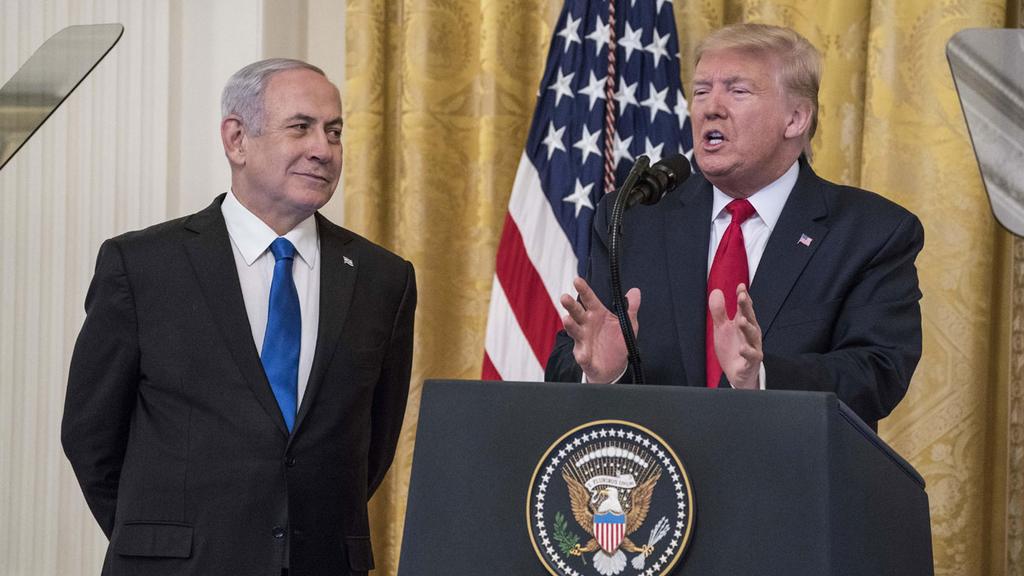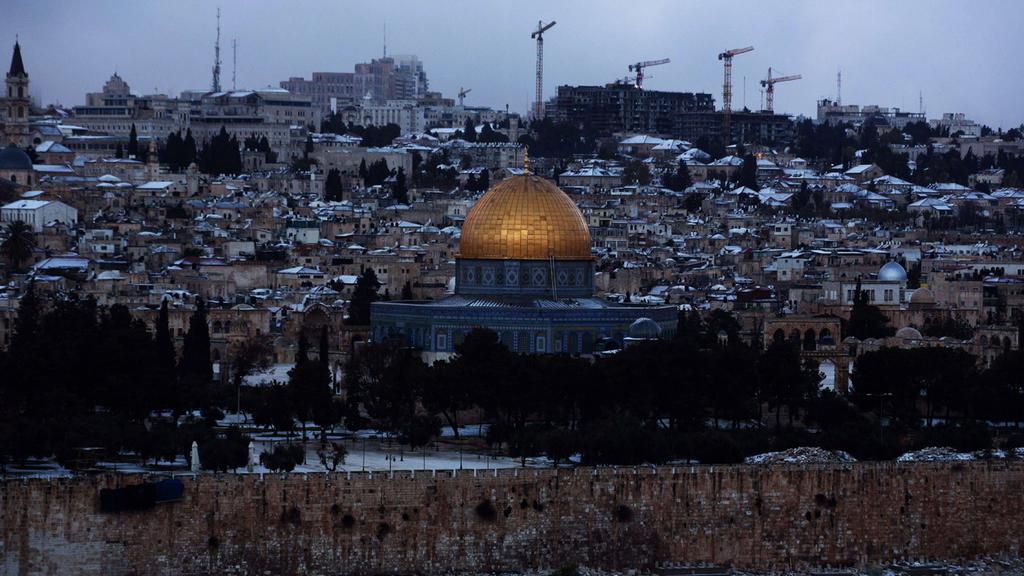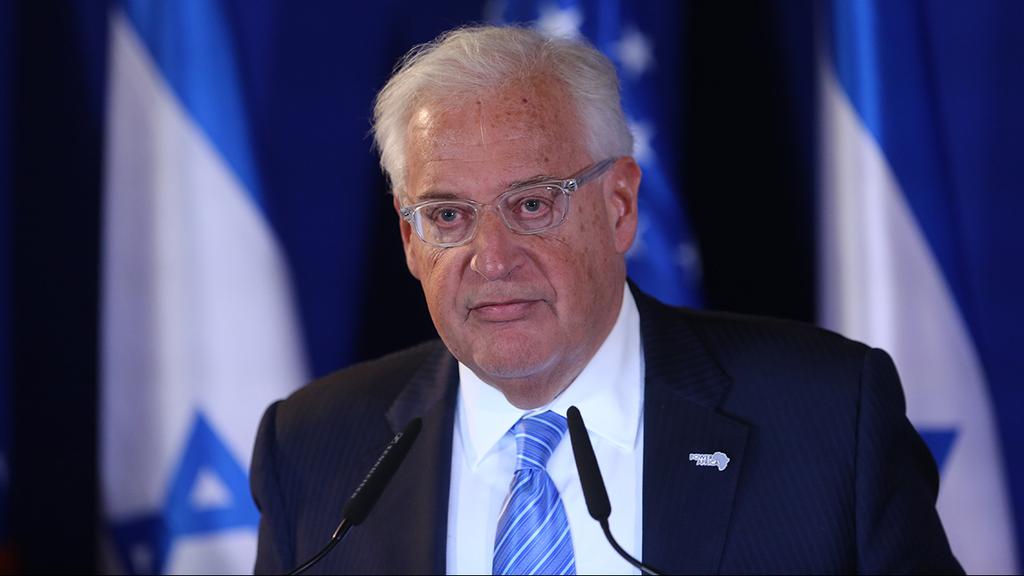Getting your Trinity Audio player ready...
A U.S. proposal for Israeli-Palestinian peace does not call for imposing any change to prayer arrangements around the Temple Mount compound, a U.S. official said on Wednesday.
The Al-Aqsa mosque compound, also known as the Temple Mount, has often been a flashpoint of violence.
Jewish prayer is prohibited at the compound under a status quo agreement, also involving neighboring Jordan, much to the distaste of some Israelis.
U.S. President Donald Trump's peace plan, whose unveiling on Tuesday was immediately welcomed by Israel and excoriated by the Palestinians, Jerusalem would be Israel's "sovereign" and "undivided" capital.
3 View gallery


Prime Minister Benjamin Netanyahu and U.S. President Trump during the unveiling of the peace plan on Tuesday
(Photo: Gettyimages)
A Palestinian capital would be set up in the urban sprawl to the north and east of a security barrier that Israel built through East Jerusalem more than a decade ago during the last Palestinian uprising.
Palestinians reject any proposal that would not see a Palestinian capital in all of East Jerusalem, which includes the walled Old City and numerous sites holy to Muslims, Jews and Christians.
The barrier would "serve as a border between the capitals of the two parties".
Palestinians who live on the Israeli side of the barrier can become citizens of either Israel or the Palestinian state, or instead retain "permanent resident" status in Israel.
The status quo at the Old City compound known to Muslims as al-Haram al-Sharif (Noble Sanctuary) and to Jews as Temple Mount "should continue uninterrupted".
Neighbouring Jordan would maintain its role as the compound's custodian.
But U.S. Ambassador to Israel David Friedman described on Wednesday the statement as aspirational, for now.
"The status quo, in the manner that it is observed today, will continue, absent an agreement to the contrary. There is nothing in the plan that would impose any alteration in the status quo that is not subject to the agreement of all the parties," Friedman told reporters in a conference call.
"Having said that, as we point out, we would like the region to be more open and free with regard to the exercise of freedom of religion," he said, suggesting such a situation might eventually be instituted at the Jerusalem site and elsewhere.



